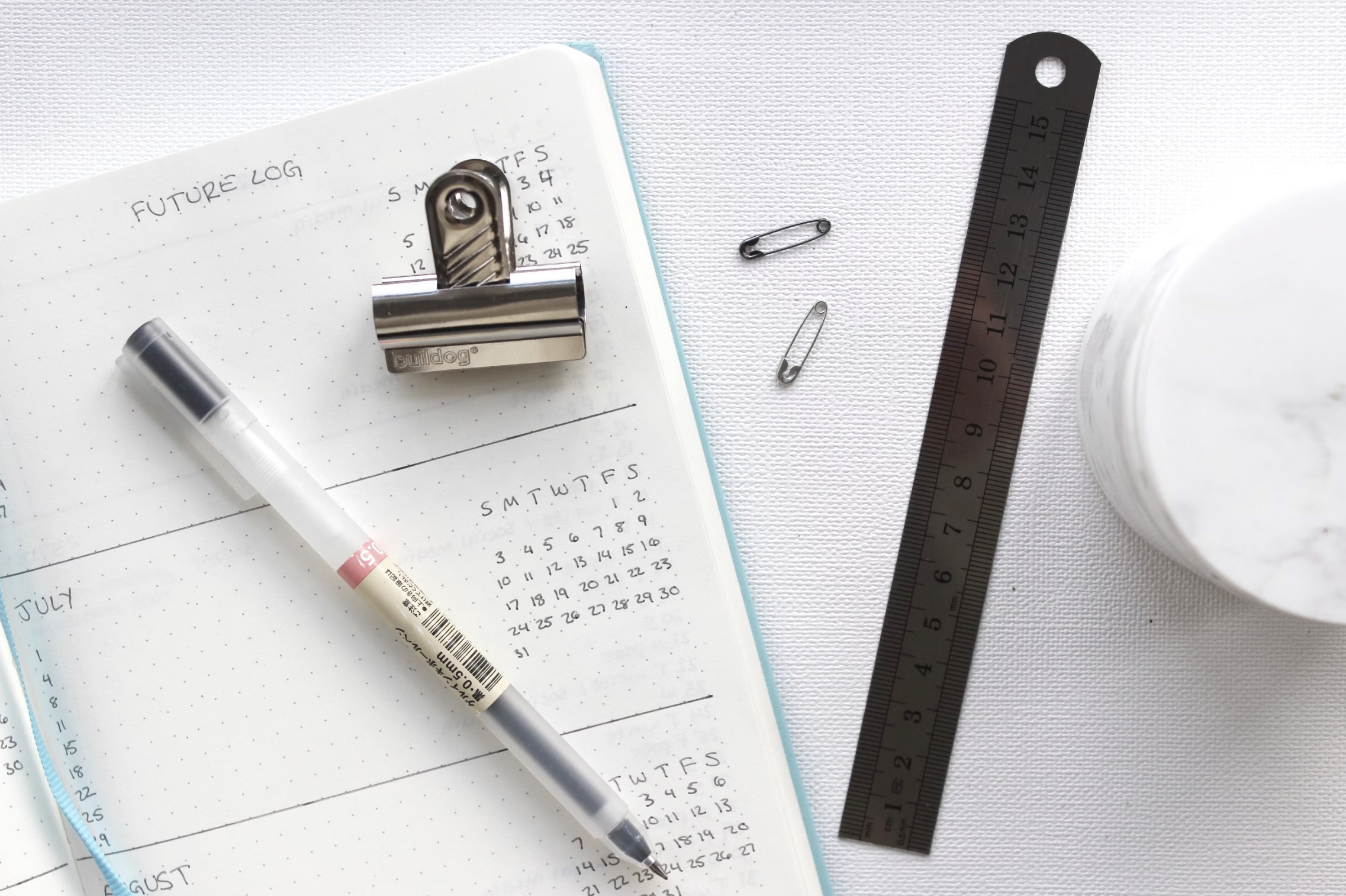1. Write down the things you need to do
Whether you prefer handwritten lists in a notebook or electronic ‘to-do list’ apps like Google Tasks or Todoist. Make sure you record all of the things that you need to get done. If you are feeling overwhelmed, seeing everything you need to do written down in one place can help you see the bigger picture (which often isn’t always as bad as you anticipate!) and take away the pressure of remembering everything.
2. Prioritise your tasks
Once you have everything you need to get done written down, it’s useful to prioritise the tasks so you know where to begin. There are two types of tasks that might take top priority depending on what you are trying to achieve – URGENT tasks (which need done in the near future) and IMPORTANT tasks (which will have the greatest impact on your life). Sometimes it’s easy to get caught up in completing easy and urgent tasks rather than ones that are important and will long-lasting improvements.
3. Use a planner / schedule
Once you know all the things you need to get done, and in what order you are going to do them, you need to think about when this is going to happen. If you have full days of classes/lectures and perhaps a part-time job, you will have limited timeslots to complete the things on your list. Consider creating a planner or schedule which allocates tasks to actual periods of time and keeps track of deadlines. If you block out all the time when you need to be in a class/lecture or have other commitments, you can see what’s left over. Remember to consider things like travel time if you need to get from one place to the other, and to factor in breaks for yourself to eat and rest!
4. Know how to use your time
It’s common to feel like you don’t have enough time to do all the things you need to. If this is the case it can be useful to spend a bit of time working out how you currently use your time. Keeping a detailed note of everything you do for a couple of days can help you discover where your time is going – for example, do you lose and hour or two a day on social media? Or do you find yourself procrastinating for half an hour before you begin a bit of work or practice?
5. Understand how you work best
Some people are productive first thing in the morning and like to get up early to get things done. Other people find that doing a bit of exercise before beginning work/practice really improves their concentration. Get to know how you work best so that you can use this information to create your own schedule. It is also useful to know how long you can focus on a task before needing a break so that you can chunk up your time in this way – for example, work in a focused way for 20 minutes, then have a 5-minute break before going back for another 20 minutes. Short periods of good quality time are better than unproductive long ones!
6. Break down big tasks
Big tasks or projects can feel overwhelming, especially when you are busy or tired. It helps to break them down into smaller, manageable chunks which you know that you can achieve one by one. Once you have a list of smaller tasks you can create a timeline of when you are going to do them – if you have a deadline to work towards this can help you ensure you finish on time. It takes a bit of practice to get used to doing this but is a worthwhile thing to learn as working in this way can help you avoid procrastination and make the overall project feel less stressful.
7. Minimise distractions
Try to identify things that are distracting for you when you’re working. Perhaps having your phone nearby, or the TV on in the background is too tempting when you are trying to concentrate. Can you find a good place to get work done like the library, a quiet room or a café? And it helps if you have had enough to eat and drink before you begin so that you feel comfortable and can focus on the task for a while before needing a break.
8. Set goals which are achievable
Whether they are long-term goals, or just daily to-do lists that you want to complete in a specified time, make sure what you set out to achieve is realistic. Never managing to get through the work you’ve set for yourself can be demotivating and increase the likelihood of feeling overwhelmed. On the flip side, finishing tasks is satisfying and can give you the motivation to keep going. Be aware of how long you have and how much you are likely to get done in that time so that you have a good chance of succeeding.
9. Take breaks
Lots of research into productivity suggests that working in small chunks of time with periods of rest in between is more effective because our attention tends to decrease after a period of time. This can vary from person to person – the average length of time that people can focus for is between 10 and 50 minutes. Taking breaks helps you process and retain information, prevents the build up of tension/stress, improves concentration and help restore motivation and creativity. Getting to know how often and for how long you need breaks is a good step towards developing healthy working practices.
10. Form good habits
Good work/study habits can include having somewhere appropriate to work, organising your time, taking breaks, not working too late into the evening, etc. Used alongside healthy living habits (eating well, getting enough sleep and exercising), they can set you up for effective and rewarding work and study. Getting into the habit or routine of something can make it much easier to achieve it day after day and it becomes part of who you are. On average it takes 66 days to turn a new behaviour into a habit – so stick in with it for a couple of months and you won’t need to think twice about doing it!
11. Accept that life can get in the way
Even if you manage to get all ten previous top tips working for you, and you feel in control of your work and studies, life sometimes gets in the way. We can’t control all the external influences which might throw us off track and make achieving your goals difficult. At these times remember to be kind to yourself and know that once the storm blows over things can get back to normal. Having good working habits set can make recovery quicker and easier.
Resources
You can download this page as a word document by clicking this link.


